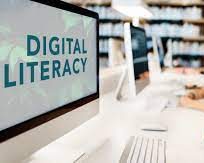[ad_1]
The founder of EDATECH, Dr Sylvester Juwe, has tasked the government at all levels with empowering students with digital tools, to boost the country’s education sector.
In a statement, he noted that equipping educators with the skills to leverage AI tools effectively would empower them to maximise technology’s impact on student learning.
“World Book Day serves as a reminder of the power of knowledge. Yet, in Sub-Saharan Africa, access to even basic resources like books remains limited. Equipping schools with a diverse range of resources, from physical books to digital tools, can ignite a passion for learning in every child.
“Imagine a leading tech company working alongside the Ministry of Education to develop culturally relevant, AI-powered platforms accessible to every child. Local school leaders can co-create programmes that incorporate the local language and cultural stories, making learning more engaging and relevant,” he stated.
The startup recently launched, EDATECH, an artificial intelligent-powered platform, is aimed at revolutionising education and unlocking every student’s potential with real-time, adaptive assessments that go beyond multiple-choice, mimicking real exams to pinpoint individual strengths and weaknesses.
Juwe explained that the application bridges the language barrier, a significant obstacle in Sub-Saharan Africa’s diverse linguistic landscape.
“E-books and educational apps with translation features can open a world of knowledge in various languages. Students can learn in their native language while acquiring additional languages, fostering a deeper connection to their education,” he explained.
He added that to revolutionise Nigeria’s economy, there was a need to personalise education among students.
He declared that overcrowded classrooms and limited resources stifled the potential of millions, creating a stark contrast to the global average of 25 students per teacher.
Juwe mentioned that data from the World Bank revealed a troubling truth, “a staggering two-thirds of students in Sub-Saharan Africa leave primary school without achieving minimum proficiency in reading and mathematics. This translates to a generation lacking the foundational skills to compete in a globalised workforce”.
According to him, a lack of education stifles a region brimming with potential.
“Sub-Saharan Africa boasts a young and vibrant population, a potential powerhouse waiting to be unleashed. By prioritizing quality education, the region can unlock this potential and transform its economic landscape. Imagine a future fuelled by innovation, where critical thinking skills honed through education propel the region to global leadership,” Juwe declared.
The academic said that investing in education was an economic game-changer, stressing that a well-educated populace was the cornerstone of prosperity, “ready to tackle challenges and contribute to a flourishing region”.
Juwe called for public-private partnerships among governments, non-governmental organisations, and the private sector to create innovative learning solutions.
[ad_2]
